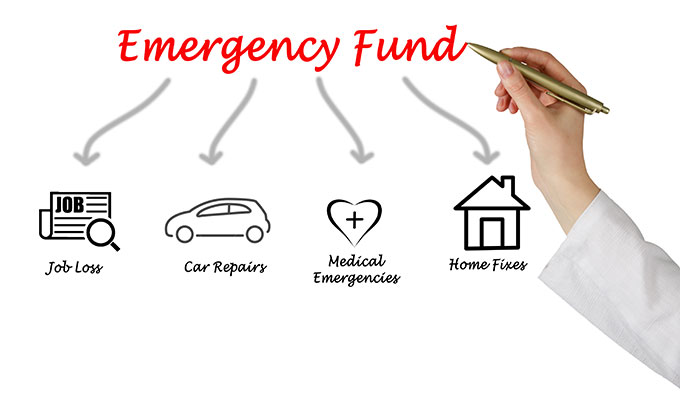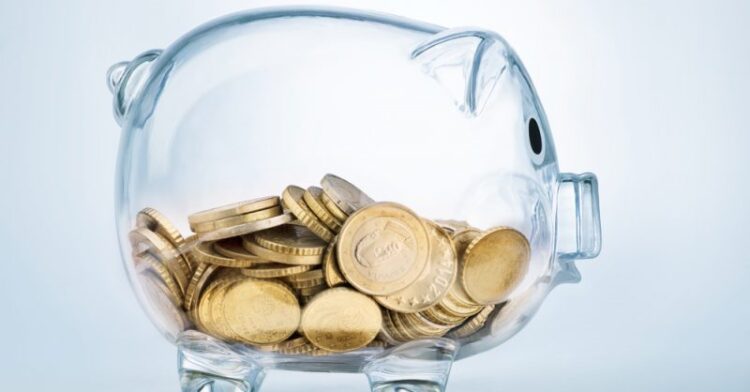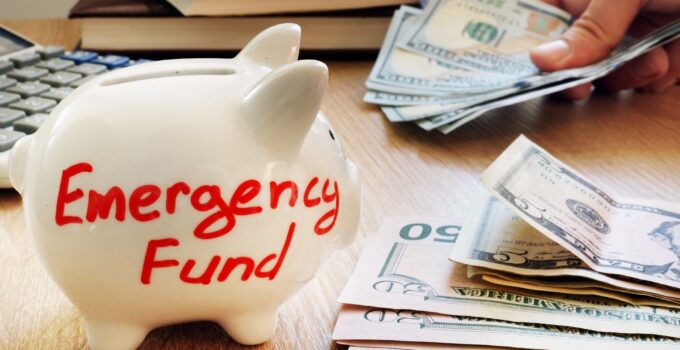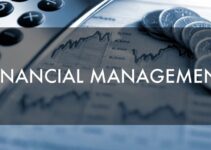The emergency fund is the financial world’s media darling. Every financial blog and advice column will reiterate the importance of having these savings, and it truly deserves its reputation.
As a financial safety net, your emergency fund is a backup when things go wrong. Your car can break down, your roof can leak, or you can take unpaid sick days — with these special savings set aside, you’ll always have some cash to handle these misfortunes.
Today isn’t the first time you’ve heard about the emergency fund, and it won’t be the last. Yet, despite its popularity, there’s still a lot to know about these savings. Have a question? Keep scrolling to see if it’s answered here today. Below, you’ll find the most common questions about emergency funds.
Page Contents
Why Do You Need an Emergency Fund?

Source: mortgagecalculator.org
Has your tire ever sprung a leak? What about the pipes in your basement or the roof over your head? These small yet urgent repairs cost money. Your last paycheck may not be enough to cover them once you pay other bills.
That’s where the emergency fund comes in. It’s a safety net for life’s curveballs, giving you the means to handle unexpected medical expenses, car repairs, and household maintenance in a jiffy.
You build these savings over time, which can make it easier to be prepared. It’s simple. Each month, you tuck $100 into these special savings, and your fund grows by $100 every month. Eventually, you might have thousands of dollars set aside.
This month-by-month contribution is much easier to budget for than an unexpected expense’s sudden, upfront cost.
How Much Should You Save in This Account?
While anything is better than nothing, experts agree you should aim for three to six months of living expenses. This amount has become the standard benchmark, as it straddles the line between achievable and practical.
That said, some people may opt for more or less depending on their situation. You may want to save as much as a year’s worth of expenses to feel safe, especially if you have many dependents or work in a volatile industry. However, you may save less than the benchmark if you’re single and more risk tolerant.
What if You Don’t Save Enough?

Source: euractiv.com
As much as the emergency fund earns a reputation as a financial backup, it may not always have your back. There will be times when it isn’t enough — whether you’re just starting out or repaying a fund you recently used.
Luckily, you have other options. In emergencies, you can visit a website like MoneyKey to learn about online loans. Online loans may act as a stand-in for your savings when unexpected expenses come at the wrong time.
Most lenders give you time to repay what you borrow and let you pay back what you owe in installments, MoneyKey included. This gives your budget some breathing room while you come up with the money, and you won’t have to worry about paying back your loan all in one lump sum.
Where Should You Keep Your Emergency Fund?
You can’t go wrong with a basic savings account. This is a tried-and-true method for stockpiling your funds for a reason: it’s cheap, easy, and safe.
However, just because it’s the most common location to hide savings doesn’t mean it’s the best. The basic savings account typically earns a dismal interest rate, which means your savings aren’t making money.
As a result, many financial advisors recommend you move your emergency fund to a high-yield account, where you can get nearly a 5% interest rate.
Most high-yield accounts offer variable interest rates that fluctuate with the Federal Reserve’s rate changes. Right now, they’re high, but they could lower in the future.
Just watch out for banks that require account minimums or place holds on your withdrawals. Your emergency fund should be free, quick, and easy to access. As a result, you should never invest your emergency fund, as many portfolios lock your cash in for a specific amount of time. Withdrawing it early could accrue fines and tax penalties.
Can You Use Your Emergency Fund on Non-Emergencies?

Source: nbcnews.com
As a general rule, you should consider your emergency fund as off-limits. It’s there for emergencies, so only use it for one.
Let’s be honest — it’s your money to save, so it’s yours to spend. If you decide you absolutely need to take a vacation, and your emergency fund is the way to buy those flights, you can technically do that. But this decision could have long-term consequences if you run into an emergency, and your fund is too small to handle it.
Again, you can always take out an online loan for help, but it’s just easier to handle unexpected issues on your own dime.
Should You Pay Off Debt Before You Save?
Another common question about emergency funds relates to timing. If you’re in debt, should you prioritize paying off your loans before you save? You can find different answers depending on who you ask.
However, the consensus is that you should learn how to juggle these goals. You should save a little bit each month while making your minimum payments on loans and lines of credit. This is especially true if you owe a lot of money across several different accounts.
Think about it — if it would take you years to become debt-free, prioritizing debt would mean living all those years without a safety net. And like we mentioned above, living without a safety net can cause you to rely on more debt.
If debt sucks all the money out of your budget, talk to a free credit counselling service for help. These professionals can help you balance a practical budget that helps you get out of debt and save money.
The Takeaway:
On the surface, having an emergency fund is simple; it’s a critical safety net that provides financial security at difficult times throughout your life. But once you go beyond the “what,” there are a lot of “hows,” “whys,” and “wheres” that follow.
Asking these important questions is a vital step in your financial literacy journey. More importantly, finding the answers can help you save with intention and build a bright financial future for your family. So, keep asking questions. The ones covered here are just the start!





